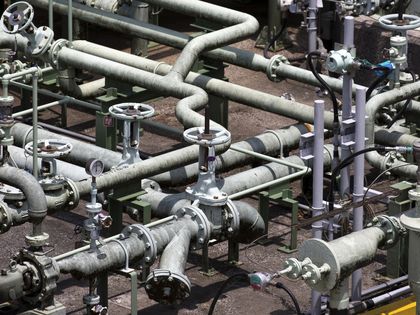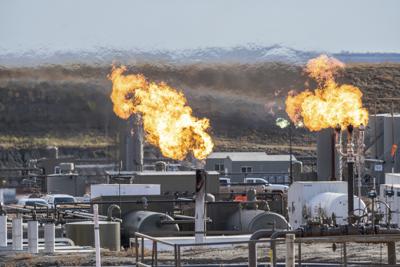fgas
fgas hello _ fossil gas
the primary component of "natural gas" aka fossil gas, fgas, is methane CH4 and as a superpotent greenhouse gas its presence in the atmosphere affects Earth's temperature and climate system. It would be natural to keep it in the ground.
CH4 gas stoves and heaters
fossil gas is marketed as "clean natural gas" and the propaganda on this is incredible. Gas stoves and gas heaters, and buses running on CNG "clean natural gas" are spewing methane emissions into the atmosphere. And btw, a city bus weighs 12 tons (US ton is 2000 lbs), and with people onboard it weighs 30,000 pounds.

fossil gas is extracted, stored, transported and then distributed to commercial and residential facilities.
fossil gas takes alot of energy to extract and distribute, is difficult to contain and leaks into the atmosphere, and is a leading source of carbon emissions when burned as fuel. Scientists have reported that methane emissions from the oil and gas industry are far worse than previously thought.
fgas
Worldwide air pollution
worldwide air pollution from burning natural gas is causing lung disease, heart disease, and death.
gas flaring is a waste
gas flaring is burning off the gas which comes out of the ground while drilling for oil. The process of gas flaring is condemned as a danger to the environment and human health, as well as a waste of fuel.

ever wonder why they flare the gas rather than capture it? Flaring is an unproductive waste of a resource. It is a way to save money and just burn the gas where they do not have a pipeline to capture it.
what a waste
Flaring wastes 3.5% Scientific American
Air sampling reveals high emissions from gas field.
Air sampling Nature
fracking hello _
fracking is a method of underground fossil gas extraction. This is energy intensive and massively destructive to the environment. Fracking pumps toxic methane directly into the air through the venting process. This is big waste of energy, but very profitable for the oil and gas companies.
old oil and gas sites are a climate menace. An empire of dying wells Bloomberg
Learn about air pollution, greenhouse gas, carbon dioxide, and methane emissions: